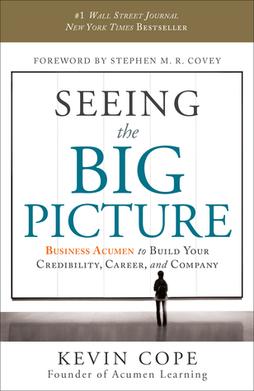Seeing the Big Picture
Seeing the Big Picture is a concept that refers to an individual's ability to understand, interpret, and appreciate the complexity and entirety of a situation, rather than focusing solely on its parts. This ability is crucial in various fields such as business, strategic planning, leadership, and problem-solving. It involves synthesizing information, recognizing patterns, understanding relationships, and anticipating potential outcomes. Seeing the big picture allows individuals and organizations to make informed decisions, develop strategic plans, and navigate complex environments effectively.
Overview[edit | edit source]
Seeing the big picture is often contrasted with a detail-oriented perspective, where the focus is on the minutiae rather than the overall context. While attention to detail is important in many scenarios, the ability to see the big picture is critical for strategic thinking and long-term planning. It enables one to prioritize actions, allocate resources efficiently, and foresee the implications of decisions.
Importance in Business and Leadership[edit | edit source]
In the context of business and leadership, seeing the big picture is a valuable skill that helps leaders and managers to guide their teams and organizations towards achieving long-term goals and objectives. It is essential for strategic planning, where understanding the broader market trends, competitor behavior, and internal capabilities is crucial. Leaders who can see the big picture are better equipped to inspire their teams, communicate vision, and drive change.
Strategies to Develop the Ability[edit | edit source]
Developing the ability to see the big picture involves several strategies:
- Broadening Perspective: Actively seeking information from diverse sources and considering multiple viewpoints.
- Engaging in Reflective Thinking: Taking time to reflect on experiences, decisions, and outcomes to understand their broader implications.
- Practicing Systems Thinking: Understanding how different elements within a system interact and affect each other.
- Setting Clear Goals and Objectives: Having a clear understanding of what you are trying to achieve helps to focus on the bigger picture.
- Learning from Others: Seeking mentorship and advice from individuals who are adept at big-picture thinking.
Challenges[edit | edit source]
One of the main challenges in seeing the big picture is the overwhelming amount of information and data available, which can lead to analysis paralysis. Additionally, cognitive biases and a natural tendency to focus on immediate issues can hinder one's ability to maintain a broad perspective.
Conclusion[edit | edit source]
Seeing the big picture is a critical skill that enhances decision-making, strategic planning, and leadership effectiveness. It requires a conscious effort to broaden one's perspective, engage in reflective thinking, and understand the interconnectedness of various elements within a system. By developing this ability, individuals and organizations can better navigate complexity, anticipate challenges, and seize opportunities.
Search WikiMD
Ad.Tired of being Overweight? Try W8MD's physician weight loss program.
Semaglutide (Ozempic / Wegovy and Tirzepatide (Mounjaro / Zepbound) available.
Advertise on WikiMD
|
WikiMD's Wellness Encyclopedia |
| Let Food Be Thy Medicine Medicine Thy Food - Hippocrates |
Translate this page: - East Asian
中文,
日本,
한국어,
South Asian
हिन्दी,
தமிழ்,
తెలుగు,
Urdu,
ಕನ್ನಡ,
Southeast Asian
Indonesian,
Vietnamese,
Thai,
မြန်မာဘာသာ,
বাংলা
European
español,
Deutsch,
français,
Greek,
português do Brasil,
polski,
română,
русский,
Nederlands,
norsk,
svenska,
suomi,
Italian
Middle Eastern & African
عربى,
Turkish,
Persian,
Hebrew,
Afrikaans,
isiZulu,
Kiswahili,
Other
Bulgarian,
Hungarian,
Czech,
Swedish,
മലയാളം,
मराठी,
ਪੰਜਾਬੀ,
ગુજરાતી,
Portuguese,
Ukrainian
Medical Disclaimer: WikiMD is not a substitute for professional medical advice. The information on WikiMD is provided as an information resource only, may be incorrect, outdated or misleading, and is not to be used or relied on for any diagnostic or treatment purposes. Please consult your health care provider before making any healthcare decisions or for guidance about a specific medical condition. WikiMD expressly disclaims responsibility, and shall have no liability, for any damages, loss, injury, or liability whatsoever suffered as a result of your reliance on the information contained in this site. By visiting this site you agree to the foregoing terms and conditions, which may from time to time be changed or supplemented by WikiMD. If you do not agree to the foregoing terms and conditions, you should not enter or use this site. See full disclaimer.
Credits:Most images are courtesy of Wikimedia commons, and templates Wikipedia, licensed under CC BY SA or similar.
Contributors: Prab R. Tumpati, MD

